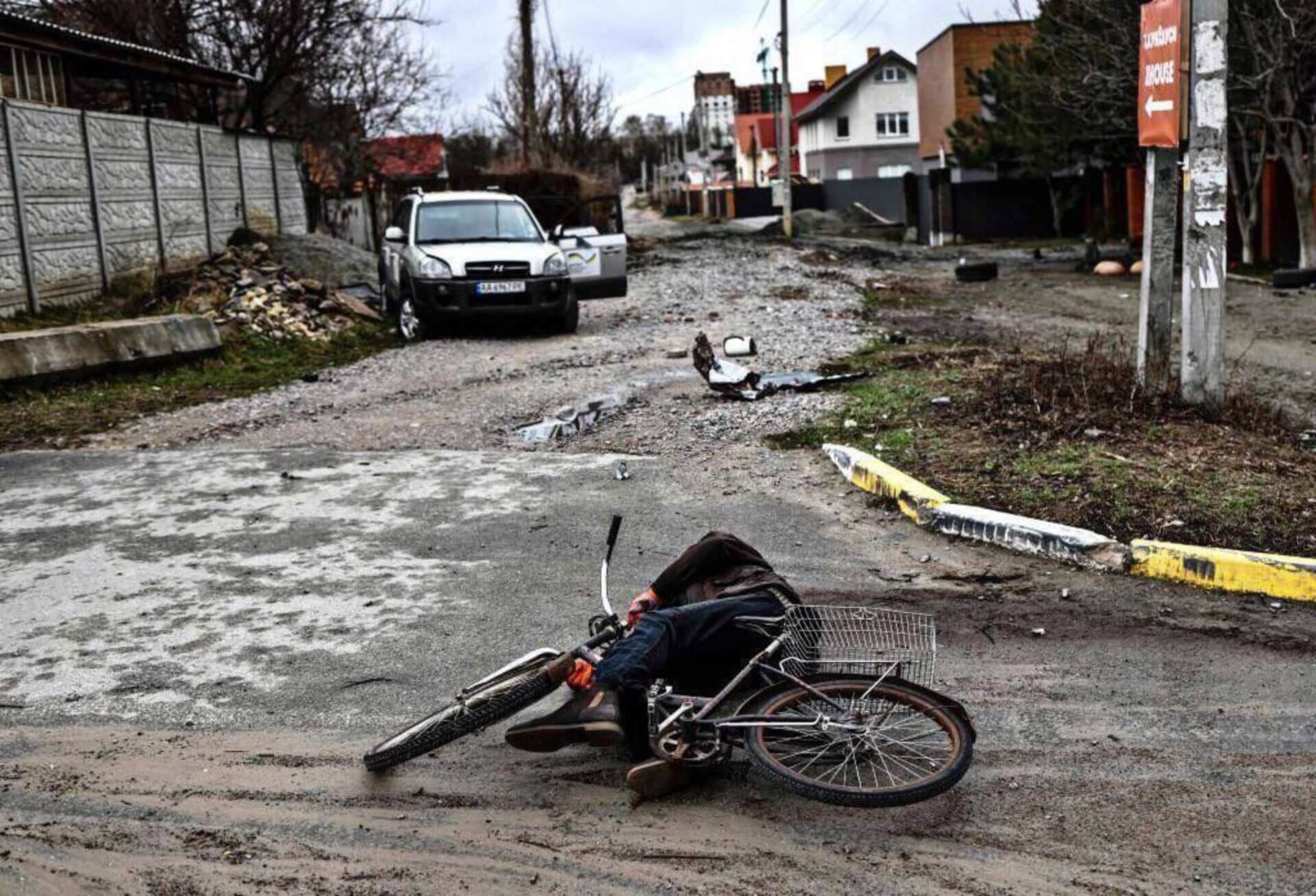On Monday, France and Germany announced the expulsion of several Russian envoys following reports of a massacre and atrocities in the Ukrainian town of Bucha.
Though a spokesperson for the French Foreign Ministry did not explicitly mention Bucha, they did mention that Paris would expel several members of the Russian embassy “whose activities are contrary to our security interests.”
Similarly, German Minister for Foreign Affairs Annalena Baerbock cited the Bucha massacre as the reason behind the expulsion of 40 Russian envoys. Baerbock stated that the massacre highlighted Moscow’s “unbelievable brutality,” which she asserted must be countered with the “strength of our freedom and our humanity.”
“The government has therefore decided today to declare undesirable a significant number of members of the Russian embassy who have worked here in Germany every day against our freedom, against the cohesion of our society,” she remarked. Additionally, Baerbock vowed more sanctions against Russia and reaffirmed support for the Ukrainian armed forces and the North Atlantic Treaty Organization’s (NATO) eastern flank.
BREAKING: Germany's Defence Minister says the EU must discuss banning Russian gas in light of the Bucha Massacre
— Samuel Ramani (@SamRamani2) April 3, 2022
Last week, the Netherlands, Belgium, Ireland, the Czech Republic, Poland, Bulgaria, Slovakia, Estonia, Latvia, Lithuania, and Montenegro had also expelled Russian envoys in response to Russia’s invasion of Ukraine.
The shift in European countries’ Russia strategy comes after Ukrainian officials and non-governmental organisations (NGOs) reported civilian massacres and rapes by Russian forces in Bucha over the weekend. On Sunday, Ukrainian President Volodymyr Zelensky accused the Russian forces of committing genocide in the Ukrainian town. However, Moscow has denied all allegations, accusing Ukrainian authorities of fabricating claims about shelling Bucha.
Powerful, passionate address from Zelensky tonight. Switching from Ukrainian to Russian he addresses mothers of soldiers who committed horrific war crimes in Bucha, Irpin, Hostomel, asking how they raised “butchers,” and he tells Moscow to see how it’s orders are being fulfilled. pic.twitter.com/7UyYxqiY4V
— Christopher Miller (@ChristopherJM) April 3, 2022
The reports have also led to a debate in Berlin about whether the country should immediately halt gas imports from Russia to hurt Moscow financially and reaffirm support for Kyiv. Germany has thus far opposed sanctions targeting Russia’s energy sector, citing the European Union’s (EU) heavy dependence on Moscow for natural gas and a possible recession if such a measure were to be taken.
German Chancellor Olaf Scholz and Minister for Economic Affairs and Climate Action Robert Habeck have warned against taking any rash decisions that could further escalate Europe’s energy crisis. Germany’s Minister of Finance, Christian Lindner, also noted, “We have to cut all economic relationship with Russia, but at the moment it’s not possible to cut the gas supplies, we need some time so we have to differentiate between oil, coal and gas.” However, it now appears that the Bucha massacre could cause Berlin to rethink its stand on energy imports.
However, the bloc could include an embargo on Russia’s oil and coal in its fifth round of sanctions. Poland and the Baltic nations—Lithuania, Estonia, and Latvia—have been calling for a ban on Russia’s energy sector for weeks now. On Saturday, the Baltic nations declared that they would no longer import gas from Russia to meet domestic needs. But another group, including Germany, opposed the move.
Bucha massacre was deliberate. Russians aim to eliminate as many Ukrainians as they can. We must stop them and kick them out. I demand new devastating G7 sanctions NOW:
— Dmytro Kuleba (@DmytroKuleba) April 3, 2022
-Oil, gas, coal embargo
-Close all ports to Russian vessels and goods
-Disconnect all Russian banks from SWIFT pic.twitter.com/oZkCAETCQp
The bloc’s foreign policy chief, Josep Borrell, remarked that the Union “supports all measures to ensure accountability for human rights violations and violations of international humanitarian law in Ukraine by Russian Armed forces.” The EU ambassadors are expected to sign-off on the latest package during NATO’s foreign ministerial meeting on Wednesday.
Moreover, European Commission President Ursula von der Leyen stated the Commission would support efforts to investigate Russia’s war crimes in Ukraine. “The EU will be sending investigation teams on the ground to support the Ukrainian Prosecution Services. The perpetrators of these heinous crimes must not go unpunished,” she added.
I spoke with President @ZelenskyyUa about the atrocious murder of civilians in Bucha and elsewhere in Ukraine.
— Ursula von der Leyen (@vonderleyen) April 4, 2022
The EU is ready to send Joint Investigation Teams to document war crimes in coordination with the Ukrainian Prosecutor General.@Europol and @Eurojust will support.
Various European leaders, such as Polish Prime Minister (PM) Mateusz Morawiecki, Spanish PM Pedro Sánchez, and French President Emmanuel Macron, have also condemned Russia’s war crimes and backed efforts to investigate them.

